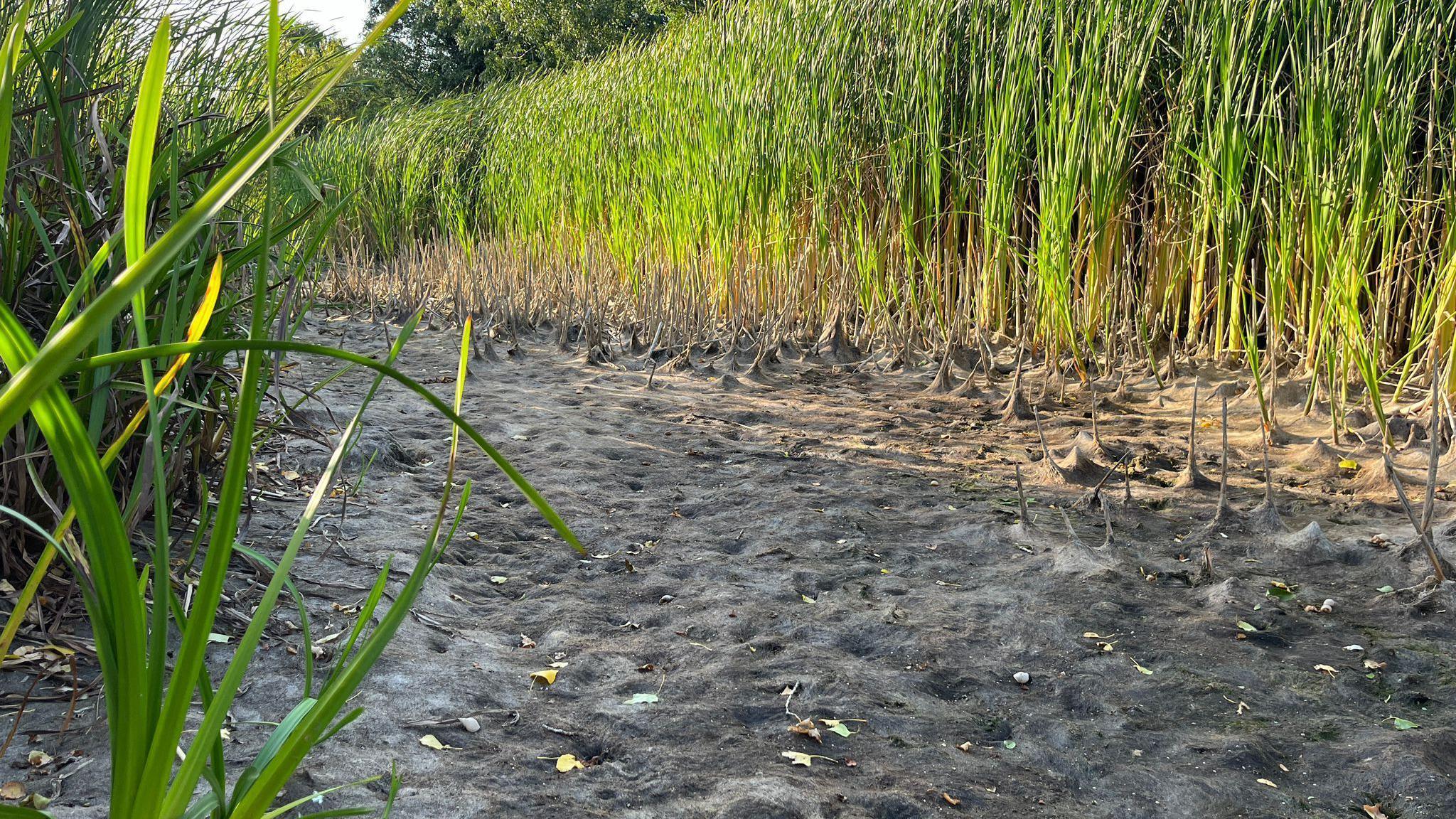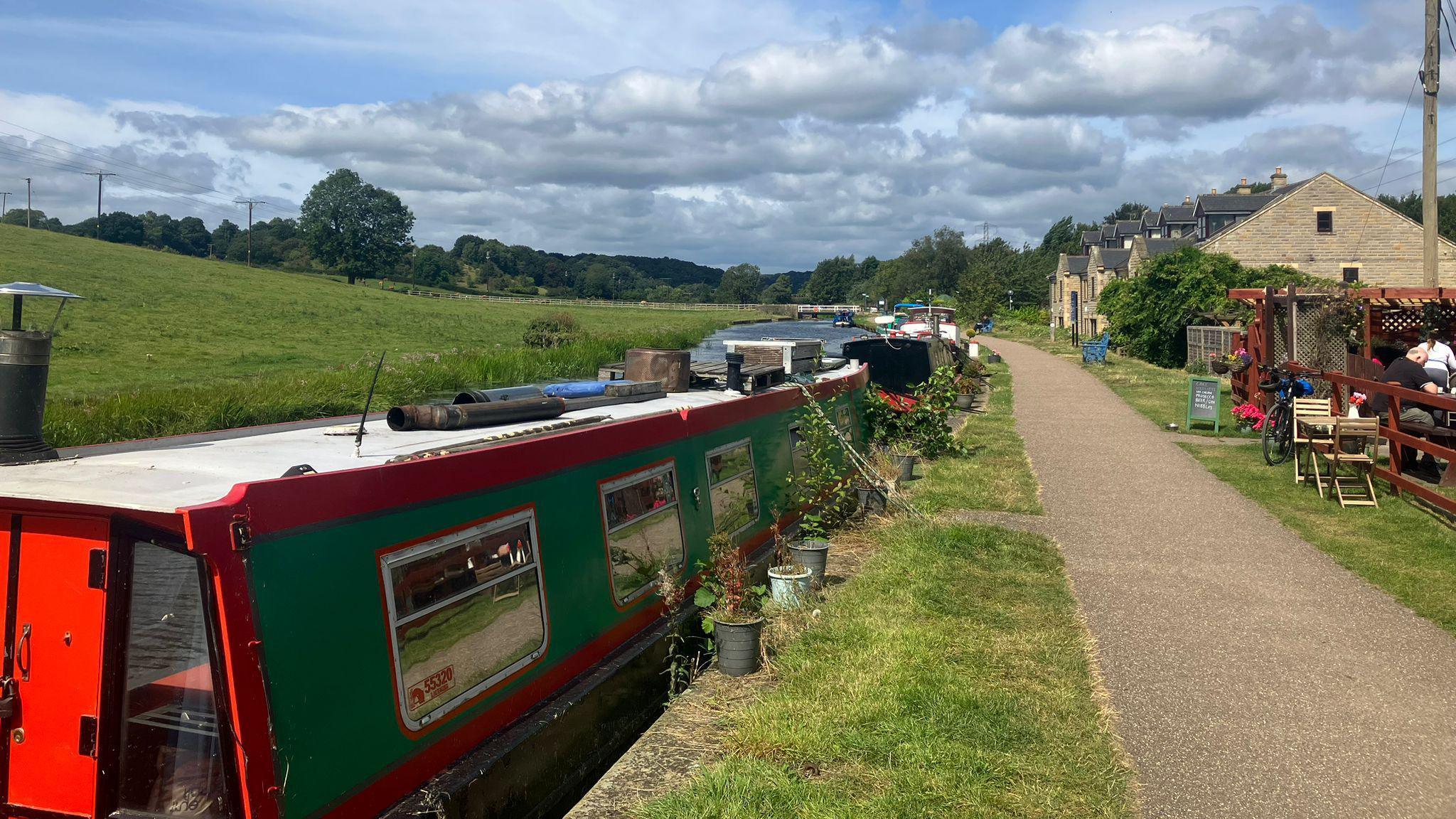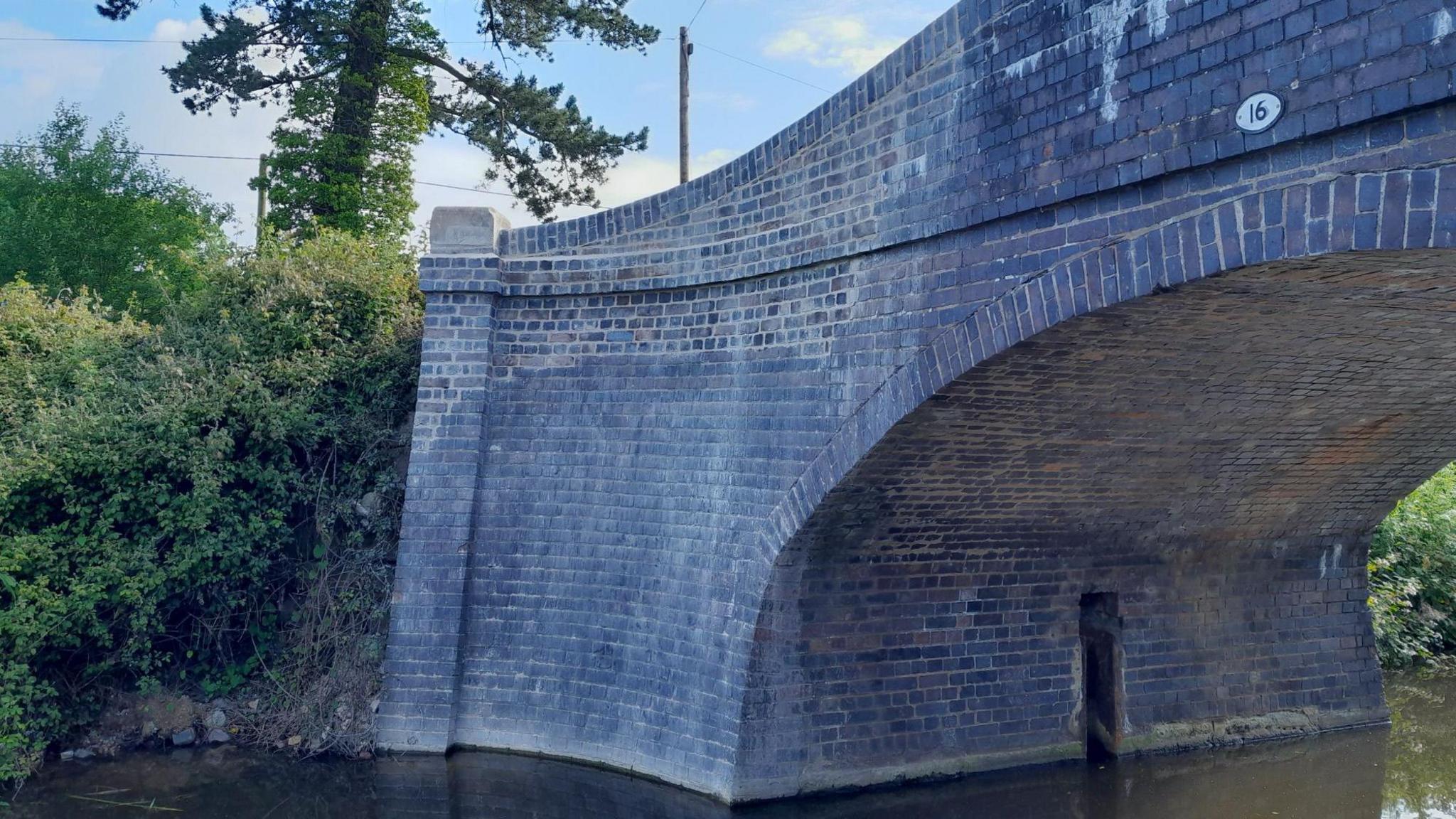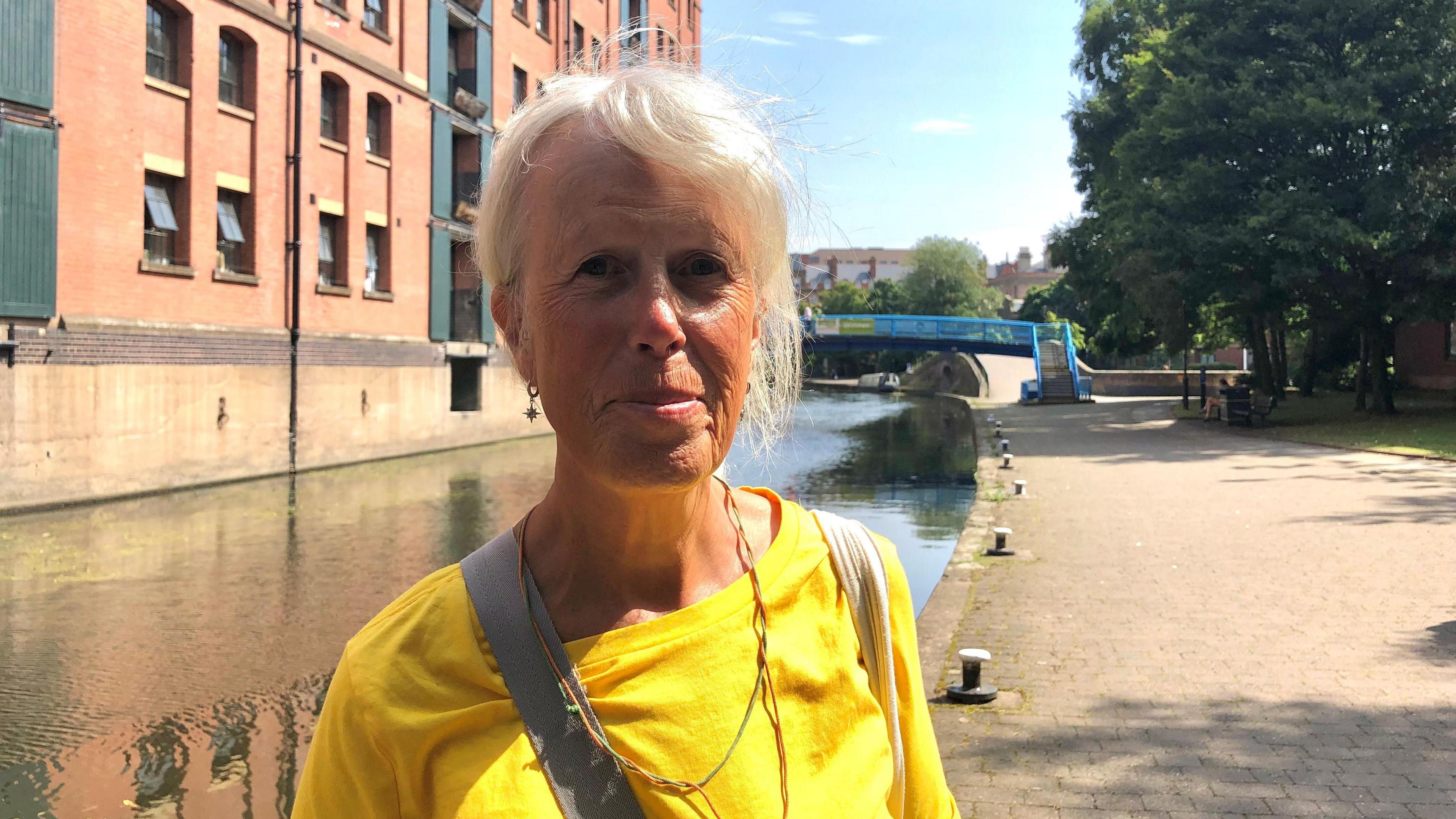Bid for funding to identify canal leaks

Part of the Grantham Canal has completely dried up
- Published
A campaign group is looking for funding to help fix "problems" with a canal after part of it dried up.
Fish rescue notices have been put up along an unnavigated section of the Grantham Canal, where it runs through Lady Bay in Nottinghamshire, after water levels dropped, according to the Local Democracy Reporting Service (LDRS).
The West Bridgford Canal Group, which monitors the water levels from Gamston to the River Trent, is seeking £25,000 in National Lottery funding to pay for hydrologists to identify leaks.
The Canal and River Trust, which manages the waterway, has cited climate change as a factor.
The canal originally opened in 1797 to transport coal from Nottingham to Grantham, but was replaced when railways took over.
It was closed to boating in 1929, with small sections reopened following restoration work, but it is still mostly full of water and remains a valuable wetland habitat.
Paul Abel, from West Bridgford Canal Group, told the LDRS he has received multiple calls and messages alerting him to fish in distress.
“The low water levels are caused by leaks in the bed of the canal," he said.
"The clay in it is over 250 years old and it has degraded over time, and in many places no longer retains water effectively.
“That has brought the water levels down by half."
Mr Abel said there were "three problems" in total, including vegetation on the banks of the canal and warmer temperatures.
'No quick wins'
The Canal and River Trust said it was working with local communities to clear vegetation to improve water flow, as well as with Rushcliffe Borough Council and other groups to identify and fix leaks.
It says it “retains a long-term aspiration to see the whole canal restored for navigation” and is working with towards the goal of reconnecting it with the River Trent.
“With the climate becoming increasingly hot and dry water supply on the canal is challenging, particularly at the Nottingham end,” a spokesman said.
“When water levels drop the trust’s operational and environmental teams keep a close eye on canal wildlife for signs of distress and carefully monitor dissolved oxygen levels.
“Unfortunately there are no quick wins, no alternative supplies of water that can be easily tapped in to, but the trust is working with local partners to try and improve the situation.”
Follow BBC Nottingham on Facebook, external, on X, external, or on Instagram, external. Send your story ideas to eastmidsnews@bbc.co.uk, external or via WhatsApp, external on 0808 100 2210.
Related topics
- Published21 August 2024

- Published11 June 2024

- Published7 August 2024
